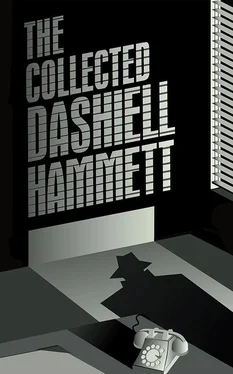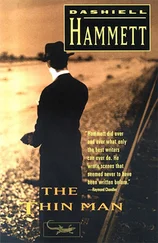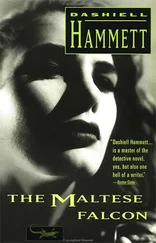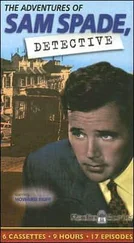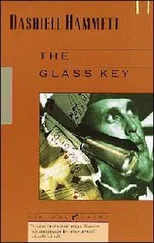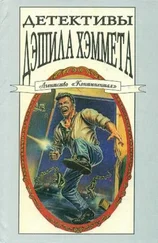Itchy — idling now most of the days in his room, rereading the three coloured clippings and mulling over the phrase, “gentlemen crooks of fiction” — was of this tribe. And his place among them, he boasted, was second to none. He was as tough as any, as independent of the comforts of less hardy existences, as able to take care of himself.
But it wasn’t as if he had been born to that life. If you came right down to it, his people were as good as the best. Hadn’t his old man been a letter carrier for twenty-five years? No, his people weren’t riff-raff by any means. And he had been given a good education before he slipped away on his own account: he had gone through the seventh grade of grammar school. So if he was a “stiff” it was from choice, not because — like Pete, for instance — he wasn’t fit for anything else. He could do other things if he wanted to. And maybe he would want to. There might be something in this gentleman crook stuff. People had written books about them...
In a downtown bookstore a saleswoman told Itchy that she did have gentleman crook stories, and she sold him five of them.
At the outset he found them disappointing, meaningless. They hadn’t anything to do with life after all. Four of them he put aside with their initial chapters only partly read, but on the fifth he got the swing of the thing, read it through, went back to the others, read them, and returned to the bookstore for more.
The books weren’t on the whole satisfactory. In the first place, most of them had to do with house-burglars. And, although these fellows were undoubtedly a very superior breed, with their elegant clothes and manners, their brilliant repartee, and their daring audacity, Itchy couldn’t spare them a large measure of the contempt he felt for house-burglars. Then, in many of the stories, the thief was revealed, toward the end, as a detective going deviously, foolishly, and with much trouble to himself, about his hunt for the missing jewels, or one thing or another. And, if really a crook, he was more than likely to reform in the last few chapters; but as he usually bettered his financial condition by this “going queer,” he wasn’t to be blamed so much for that.
The girls with whom these fellows soon or late became involved Itchy found to his liking. Their very difference from anything he had ever known made them more plausible to him. The women with whom he had come in contact from time to time certainly hadn’t been very wonderful, even discounting his tribal pose of misogyny. But these were different. More like — the girl in the bookstore was something on their order...
Still, say what you would about these men in the books, — neglecting the most simple precautions, always being surprised at work, showing themselves unnecessarily gullible, and only succeeding through the miraculous favors of chance, — they did have something. They made big hauls, they enjoyed themselves, people wrote stories about them... Take, for example, that one who told the detective: “I’m tired of you. You bore me. You weary me. You exasperate me. Now get out.” That wasn’t a bad line at all. Imagine the look on an “elbow’s” face if you told him that! Naturally, though, you’d want to be sure you were sitting pretty before you made a crack like that.
Of course, you couldn’t go around pulling jobs as these fellows did: they were no good in a practical way. But a man who knew his business through and through might, by copying their manners, their dress, and their talk, not only increase his profits by being able to get into places from which less polish would bar him, but have a lot of fun in the bargain. The newspapers liked that kind of stuff, too. Look what a fuss they raised over those two jobs of his, and he hadn’t even tried to make them fancy.
Another visit to the bookstore exhausted its stock of gentleman crook fiction, but he learned that w hat he wanted could be found on the screen now and then and in the magazines often.
He was in earnest now. His hair was carefully parted and weighted down with a thick gummy substance that he bought in large jars; he spent time in the barber’s chair, and even submitted his hands to a manicure. Nor had he neglected tailor, haberdasher, hatter, and booter.
He read aloud to himself in his room at night, and felt that his language was being improved thereby. Every day or two he visited the bookstore, ostensibly to enquire for new books, but actually for the sake of the saleswoman’s conversation. The books could give him the right words and the correct combinations, but they didn’t give him the right pronunciations. The saleswoman could, however, and not only the pronunciations but the right sort of accent. She formed her words high in the roof of her mouth, and they came out roundly and clearly in what he knew instinctively for the correct form. After he had returned to his room he would repeat everything she had said, painstakingly aping each trick of enunciation.
He was going to stick up the bookstore some day, he decided. There wouldn’t be much money in the damper (he must remember to say cash register if he spoke of it), and, in the center of the shopping district, the store was unfavorably located for a quick get-away. But the saleswoman was the only person he knew whom he thought capable of unerringly judging the false from the true, and by her attitude he would know the degree of his success. But he wouldn’t do it for a while yet; he wasn’t quite ready for so severe a testing, and, besides, she would be getting new books in from time to time, and there was no use closing that source of supply.
Another month passed before Itchy ordered evening clothes. But all the books had insisted upon them, — dinner jackets were indicated also, — so he finally came to it. He didn’t, however, buy a dinner suit. He felt that since he was taking this step forward he might as well make it a decisive one, and waste nothing on the compromise between formality and informality which the dinner suit offered.
He wore the new dress suit every night from the first, which necessitated his remaining indoors for a while, until he became accustomed to the new garments. But he usually kept to his room in the evenings, anyway. He had no desire for the society of his familiars. He knew how they would greet this new Itchy, with his silk shirts and hose, his carefully tended face and hands, his glossy hair, his natty clothes. For those who dressed as he did now — the gaudy city breed — he had lost none of his old Contempt. Thus he spent much time by himself.
He became, at about this time, unpleasantly aware of his nickname. He had grown accustomed to it, had come to think of it more natural a part of him than the baptismal Floyd; but now, considering it in terms of his new development, he found it distasteful. He had acquired it five or six years before, sitting with a group of his fellows around a fire in the “jungles” outside of Fresno one night. He had been digging savagely at the flea-bites with which he was covered at the time, and some old “stiff” had flung the name across the flames at him. He had laughed with the others, and the name had stuck. Itchy Maker. What difference did it make? One name was as good as another. But now one name was not necessarily so good as another. And while the chances were that he would never mingle again with those who knew him by it, still the name might crop up at the most unexpected times to embarrass him. If he found new associates now — as he undoubtedly would before long — he meant to see to it that they knew him as “Debonair” Maker. That was a lot better than Itchy — had a fine sound, in fact.
Another fortnight, and Itchy was wearing his correct evening clothes on the streets and into the lobbies of the better hotels, where he would loiter for hours, gazing condescendingly on those whose more common garb did night and day duty. And, as his familiarity with them increased, the new clothes began to tempt him to wear them on a robbery. But he resisted that, for a while.
Читать дальше
